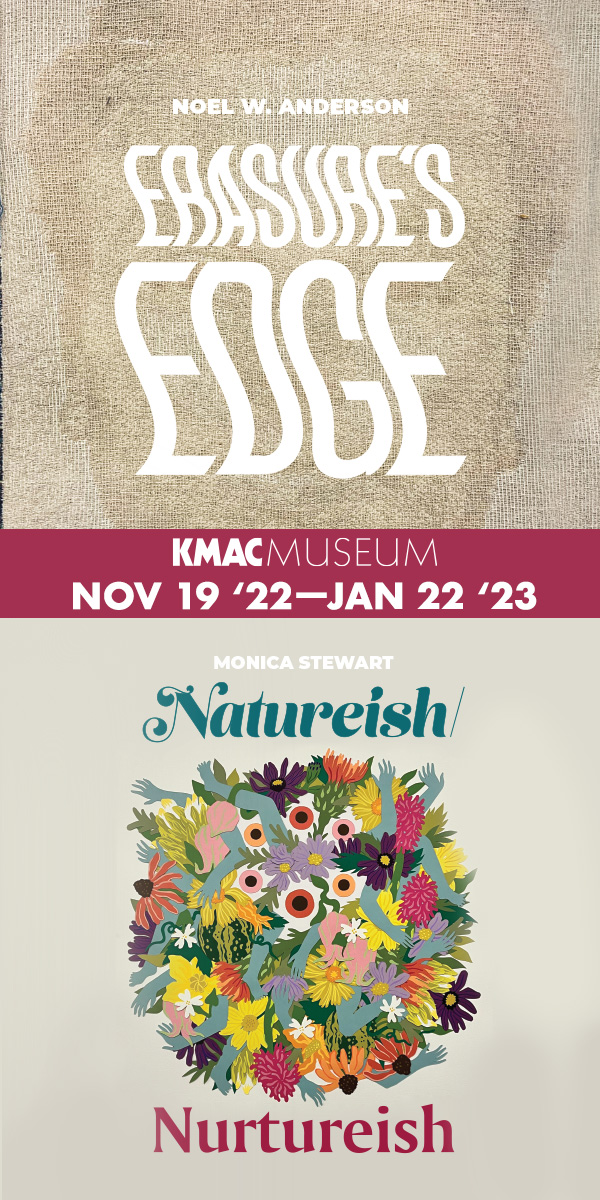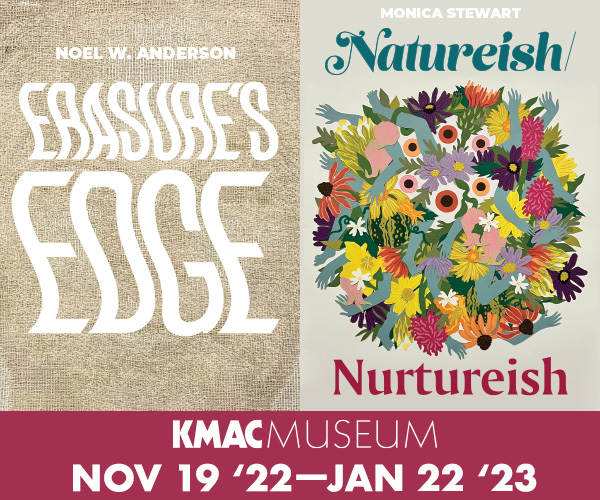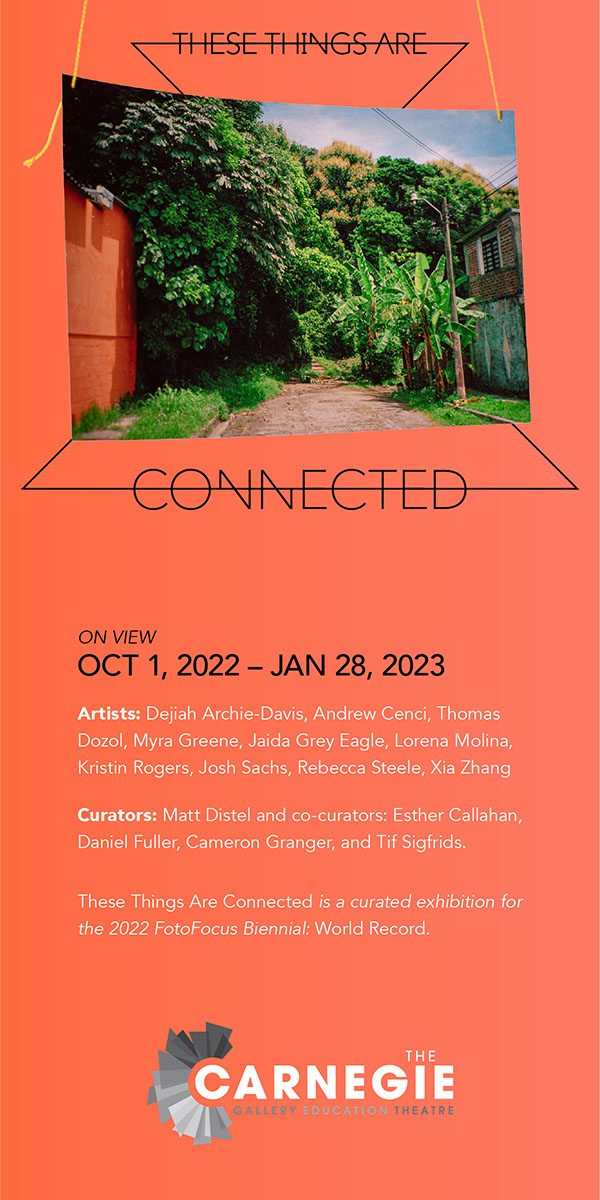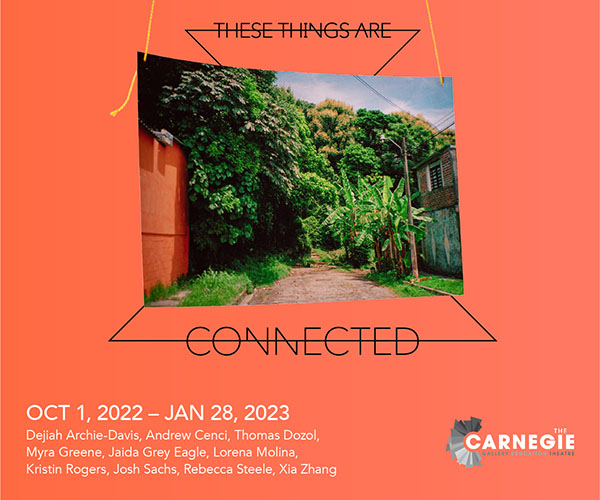A nationwide search for a successor to Scott Terrell, who led the Lexington Philharmonic Orchestra from 2009 to 2019, had been underway until the pandemic came along and brought the search to a screeching halt. The search process was revived this past spring, and Mélisse Brunet becomes the fifth music director and the first woman in that role in the 61-year history of the Lexington Philharmonic orchestra. A native of France, where she was a protégé of composer and conductor Pierre Boulez – and with six diplomas from the Paris Conservatory to her credit – Brunet came to the United States in 2010 to study at the Cleveland Institute of Music.
Brunet earned a Ph.D. at the University of Michigan and was Director of Orchestra Studies at Appalachian State University in Boone, North Carolina. She regularly guest conducts orchestras in West Virginia, North Carolina, Kansas, Ohio, and Connecticut. She is the first woman in 100 years to hold the position of director of orchestral studies at the University of Iowa School of Music. And she brings all of that knowledge and experience to Lexington, Kentucky. In an interview with Tom Martin for WEKU’s weekly current affairs magazine program Eastern Standard, Mélisse Brunet reveals a lifelong ear for jazz, shares her surprise LexPhil offer, and discusses her ideas and plans for the orchestra and the community it serves.
Click here to listen to the full-length interview. Below is an edited transcript of the interview.
Tom: Rich Copley reported in the Herald-Leader that you thought that you were just picking up a last-minute guest-conducting gig when you came to Lexington back in May to lead the LexPhil season finale concert. You were filling in for the final candidate for the orchestra’s open music director job who had withdrawn from consideration, and you were just coming to conduct, not to audition. Fast forward to where we are today, and here you are: you’ve become LexPhil’s new music director. What happened to turn a fill-in gig into what amounted to an audition?
Mélisse: That’s one of maybe the best stories of my life. That’s what happened. Yes, I think no one really saw me as anything other than a guest conductor, myself included, and I’m used to doing guest conducting. So, you know, I came to do my job as per usual and be very dedicated to that and quickly transformed with different energy, different kind of attention, different synergy or so between the people. And yeah, quickly I was offered the job, which is a dream.
Tom: Let’s talk about that synergy. First, what was your impression of the LexPhil musicians as you rehearsed with them prior to that concert in May?
Mélisse: Yes. So, you know, I started rehearsals on a Tuesday and the concert was on a Saturday. And quickly, I noticed that the musicians were very eager to be pushed. I’m rather the demanding type with really precise ideas of the music. I spent a lot of time figuring out an interpretation and sharing it with the musicians while also listening to what they have to offer and what they bring on the table. And I quickly noticed that they were giving more than 100 percent and they really wanted to be pushed and really wanted to go for a high-level interpretation of the music.
And from rehearsal to rehearsal, everything was just going exponentially. I noticed that they were really craving to be treated with respect and to have that person who would be listening to them and respecting them in front of them. And I think it’s one of my ways of leadership, and they probably also appreciated that, but I think it would be good also to ask the musicians, you know?
Tom: Well, very clearly, you made quite an impression because word is that the orchestra gave you a standing ovation after the dress rehearsal, I believe, is that right?
Mélisse: At the end of the dress, they applauded me for such a long time that it was really embarrassing. I didn’t know what to do with myself at that point, but I’m very thankful at the same time, you know. But I could have given that back to them. And I also thank them a lot because it’s been both ways. It’s me giving to them and it’s them giving to me, and for the good of the music, and for the good of the concept. So that’s why I’m always embarrassed with so many people giving so much applause because it’s teamwork, you know.
Tom: So, in the afterglow of this, this energy, people got in touch with the search committee chair and also LexPhil board president Carol McLeod, and they asked her to reconsider not including you in the search. And you ended up spending some time with her to talk about the job. She even took you to a horse farm, I believe, to visit. What was your impression?
Mélisse: I was really surprised because I didn’t know what was going on, of course, you know. And Carol took me for that horse farm’s visit. I had mentioned that I really enjoy horses and part of my family is in the horse business in France. So I really wanted to go and spend two hours together the day of the concert. And we went to see different horses, and pet them, and spend a great, great time with them. But what surprised me is that she made me an offer at that point. And I was just going to see horses and to pet horses. And then I got a job offer at the very same time, which was so emotional for me. I almost cried because I did not expect it.
Tom: Well, things move very quickly from there. Again, from that Rich Copley article, I understand that you made an incognito stop in Lexington for the Philharmonic’s traditional July 3rd patriotic concert. And you were on your way to conduct in West Virginia on July 4th. Did anybody know you were there?
Mélisse: So I decided that on my own, you know. I mean, nobody asked me to do it because I was not official. I had not been announced. Everything was signed and I had started working already, but it was not official. And I really wanted to see what is that show and how are things going because I’m a very passionate person and I like to do things well. So I was: “I’m going to Charleston, West Virginia. Why not drive instead of taking a flight, stop by Lexington and spend the entire day being in the city, looking at the atmosphere, the crowd, the ambiance, what are the pieces, and how does the crowd react to those pieces?”
But the thing is that I needed to make sure that nobody sees me, you know, because then they would know “Huh, something is happening, you know.” So I was incognito: [dressed in a] total 4th of July outfit, glasses and things. I went very close to the stage. None of the musicians recognized me and only the administration of the orchestra knew I was there. So I spent the evening sitting on the ground with Carol and listening to the concert incognito and taking notes on what to make for next year in terms of programming and things.
Tom: It’s a fun story. You know, we usually talk about the music that’s being performed, but we rarely talk about the instruments that make the music. I understand that you play a bunch of them: cello, trumpet, French horn, piano, and strings. Is it important to you, as a conductor, to understand the capabilities of the instruments before you?
Mélisse: Yes, Tom. So I have always been, as a kid, very, very drawn to the sounds of instruments and producing sounds of the instruments. I could not hold myself quiet in a room if you put me with an instrument. I have to go to the instrument and play it. It was always like that. Unfortunately, my parents were not really open-minded to me doing a lot of things. So it had to be the cello and that’s it, you know. So friends would give me their instruments like trumpets, and I had to hide them at home in a place that my parents would not find. And every time they would leave home, I would pull out the trumpet and start playing, you know.
So I had to do a lot of things on my own like that because I was so much drawn to the sounds of the instruments. And also, what really attracted me, I played in bands, but also in orchestra. So I have all of the sounds and how do they mix together? That’s what really attracted me to orchestra and orchestra conducting. And it’s my true belief that, as a conductor, you need to understand as much as you can about each instrument. It’s better, of course, if you can play them, but it’s impossible to play them all. And you will never have the level of the musicians in front of you because they dedicate their life to that instrument.
But the more you know, the more you understand, the more empathy you have for the people playing instruments because you will know, for example, playing horn is very mental, and some horn players really dislike when the conductor makes eye contact because it puts too much pressure on them and then they’re gonna crack the note. So there is a lot of psychology that’s really interesting to understand, and you can understand only once you have played that instrument in context.
Tom: That’s so interesting. I never really thought about that eye contact factor, but that must leave a musician wondering “Am I doing it right? Does she think this is great or am I making a mistake?†Speaking of the music now, what are your views about genre-bending, breaking down the barriers between music forms, the categorization that we tend to fall back on?
Mélisse: You know, I’m big into that because I’m really generally in my entire life against putting things in boxes. I think it’s too much reducing. And as artists, we need most connections. We need to think outside of the box and to make things work together, collaborate, and also genre-bending. My first love for music was for jazz and that’s how I came to music, through jazz, because I played classical music, but I was not really into it, and then it’s transformed. So I think there is a lot of fluidity here. But I hear, for example, people say “I don’t like classical music,†but at the same time, they spend two hours every day playing video games where there is classical music, so they listen to classical music all the time. Or they’re gonna watch a movie. Go to the last Jurassic Park and it’s a lot of classical music. And actually, they do love classical music. But because of that naming and classification, they think that they do not like some things that they do like actually because it came in different art forms. So I really think that it’s also really important for us, as an orchestra in America, to be more open to collaborate with other artists. Like, for example, Devine Carama played with the Lexington Philharmonic, which was fantastic, and I hope we can develop collaborations with different genres like hip-hop, jazz, but also with ballet dancers, contemporary dance, and with poetry. You know, there are so many things to be done in order to be more accurate with what people like.
Tom: This is so interesting to me because it seems like there would be tension between the improvisational dominance in jazz versus the structure of classical music. What kind of innovations can we anticipate here?
Mélisse: Yes. That’s very good to mention that. So there are many ways of performing jazz. There is a form of jazz that is very written, and there is a form of jazz that’s a lot more improvised. In classical music, you have also some composers who give freedom to the musician and letting them – for example, as a first concert, there is a part where the percussionist players have a group of notes, but no rhythms, just indication of how to fit into the ensemble, which I see also like in improvisation with a certain number of notes.
So I think like it’s part of the training and that’s why I love teaching: how do you bring that to the students? We are limited as classical musicians to read the music, not to play by ear, not to start improvising or let go. And I think a lot of that comes through the education that we give to our players to be more open-minded and train in different genres while they are studying and performing.
Tom: How does an orchestral organization like LexPhil evolve in the 21st century to be stronger, more meaningful as a community partner? And what does it mean to be, in practice, a meaningful community partner?
Mélisse: Well, in practice, it means to be relevant in your community. And what does that mean – relevant? It means feeling a need. You know, there is a need in the community. So if you’re not at all satisfying that need, you are not relevant. So it’s really understanding where is the city at? Where is the community at? What do we need to bring? What do they want? But also, what do they not know they will love, you know? Identifying all of these needs and bringing it to them. My ideal is to have great collaborations with musicians because often the musicians are left out of the equation in terms of decision-making and involvement in the community. And I think it’s going to be one of the big changes in the future. We have seen it for conductors already. If you take a conductor in the early ’80s, they were just coming, conducting their piece, treated as maestro, and boom! they go back to the hotel room and leave. Now, it’s required – and thankfully required – that conductors have all of those skills of fundraising, going to the patrons, being in the community. But I think the next step is going to be for the musicians. And that’s going to come through education first whereas you learn the skills of marketing, of talking about the music, of being more involved about the pieces they want to play because so many times when you are at school, your teacher is going to tell you you’re going to play that Bach cello suite now. When do we make the students more responsible in terms of choosing what they want to play, how they want to play it, and all of that? So it’s going to be one of the biggest steps when the musicians also have that decision-making and being part of the community, understanding who lives here, and they really want to play for them and bring their art to them.
Tom: Wonderful. With your appointment, Mélisse, all of the top leadership positions at LexPhil now will be held by women, including Carol McLeod, Executive Director Allison Kaiser. It’s quite a sea change from years ago. Your thoughts about that?
Mélisse: Yes, it is. And I seriously never thought I would experience that during my life because obviously, you know, I’ve known something totally different when I grew up. I had no mentor and no model women conductors. It was not the era of internet yet. And you could not find anyone. And now, for this organization, that’s great to have the exact opposite from what we have known and we will see what it brings. Does it bring something different?
And I think it’s very important for other people in our community who would like to do a job where they’re not yet represented, you know? And it’s not only women. It can be so many different, you know, body types, even bias and things. Or being an architect at a very high level, you don’t have a lot of women, you know, yet. And I think it’s going to be very inspiring to see that â€Okay, that’s normal.” I grew up with that model and I know I can do it for me. As a young woman, as a teenager, that would probably have changed my life to see that in my town, women in positions of leadership, and that can help the community and change the world.
Tom: You will lead your first LexPhil concert as music director on October 22nd at the Singletary Center for the Arts at UK. The program is entitled Limitless. Tell us about that.
Mélisse:  Yes. That’s really interesting. So this programming, I did not take part in it because, you know, I got hired after the programming was decided. However, what’s really interesting is that I had my own business and that was called – it was very similar from the title of this concert. But the programming is Great American Music by Copland for his third symphony, which is maybe one of the most characteristic American symphonies that was written right after World War II in 1946. And there is an overture piece by Gabriela Lena Frank. It’s three Latin American dances that are inspired sometimes by Latin American themes, but also by brass band tradition in America. So it’s a mix of different influences, a ver, dancing character and a Samuel Barber violin concerto, which is also one of the major pieces at about the same time of Copland 3. And that will be featuring Simone Porter who already came to play with the orchestra.Â
Tom: Mélisse Burnet, the new music director of the Lexington Philharmonic Orchestra, LexPhil, and we welcome you to Lexington, and thank you so much, Mélisse.
Mélisse: Thank you so much, Tom, and everyone. I look forward to meeting you at the concert next season.
Featured image by Cecilia Shearon.




